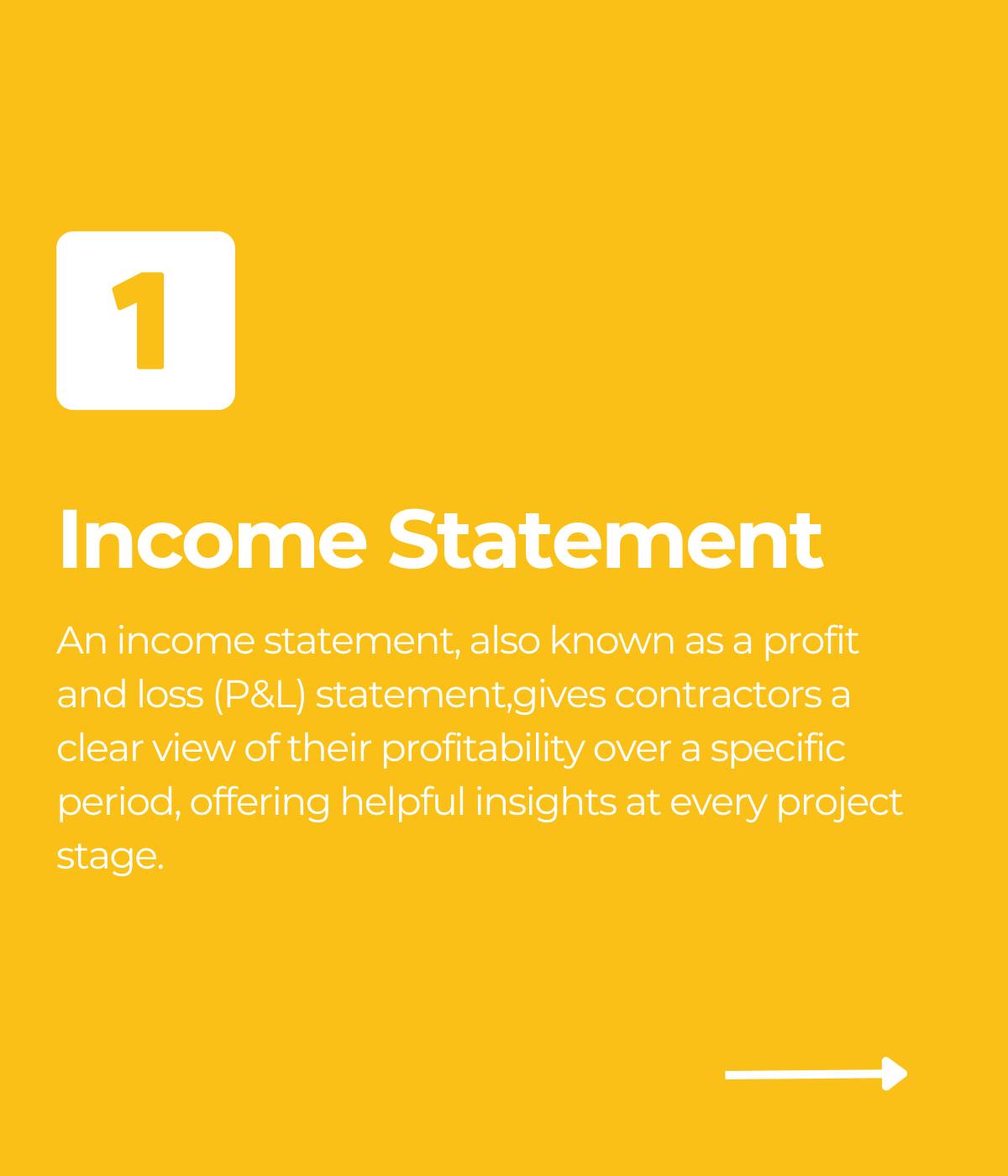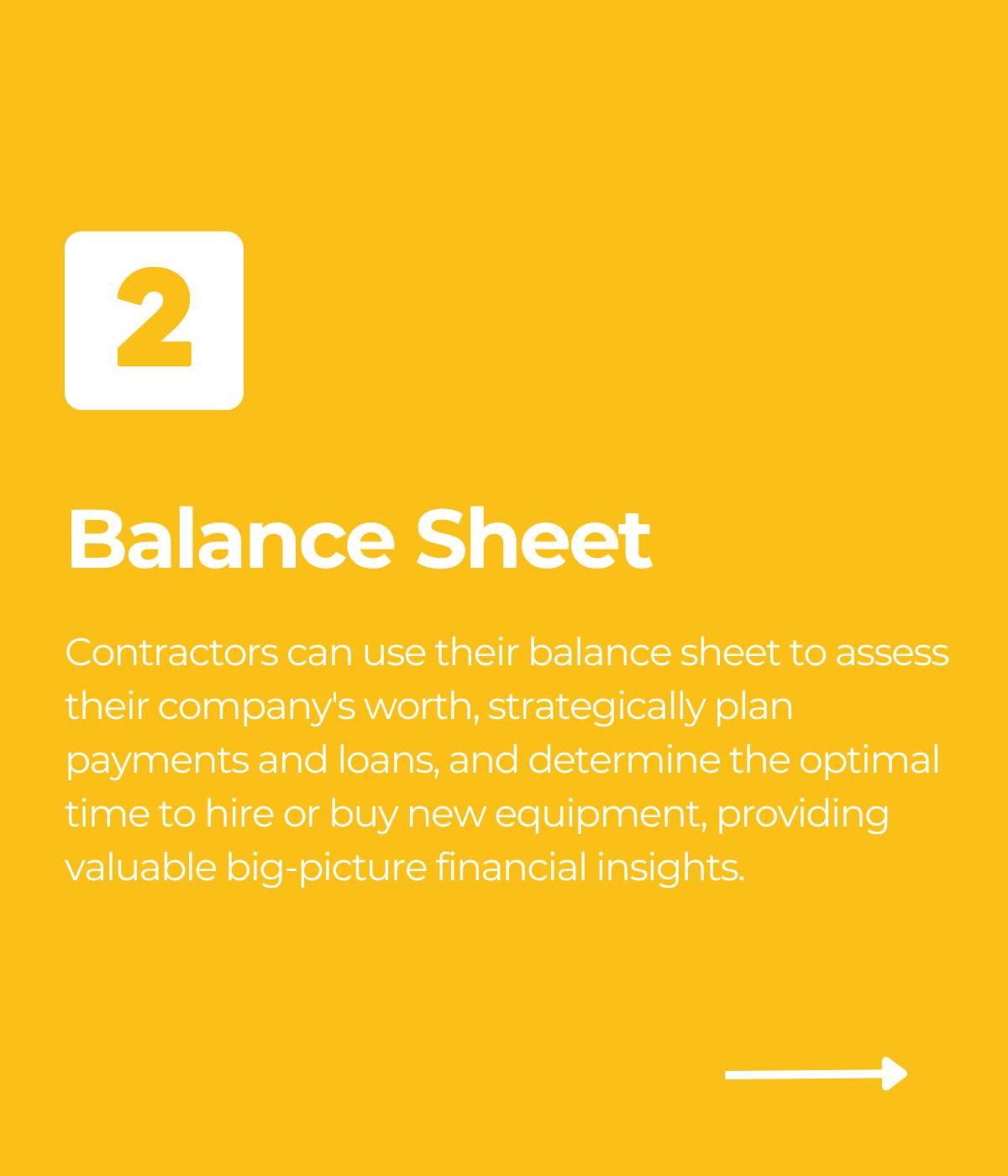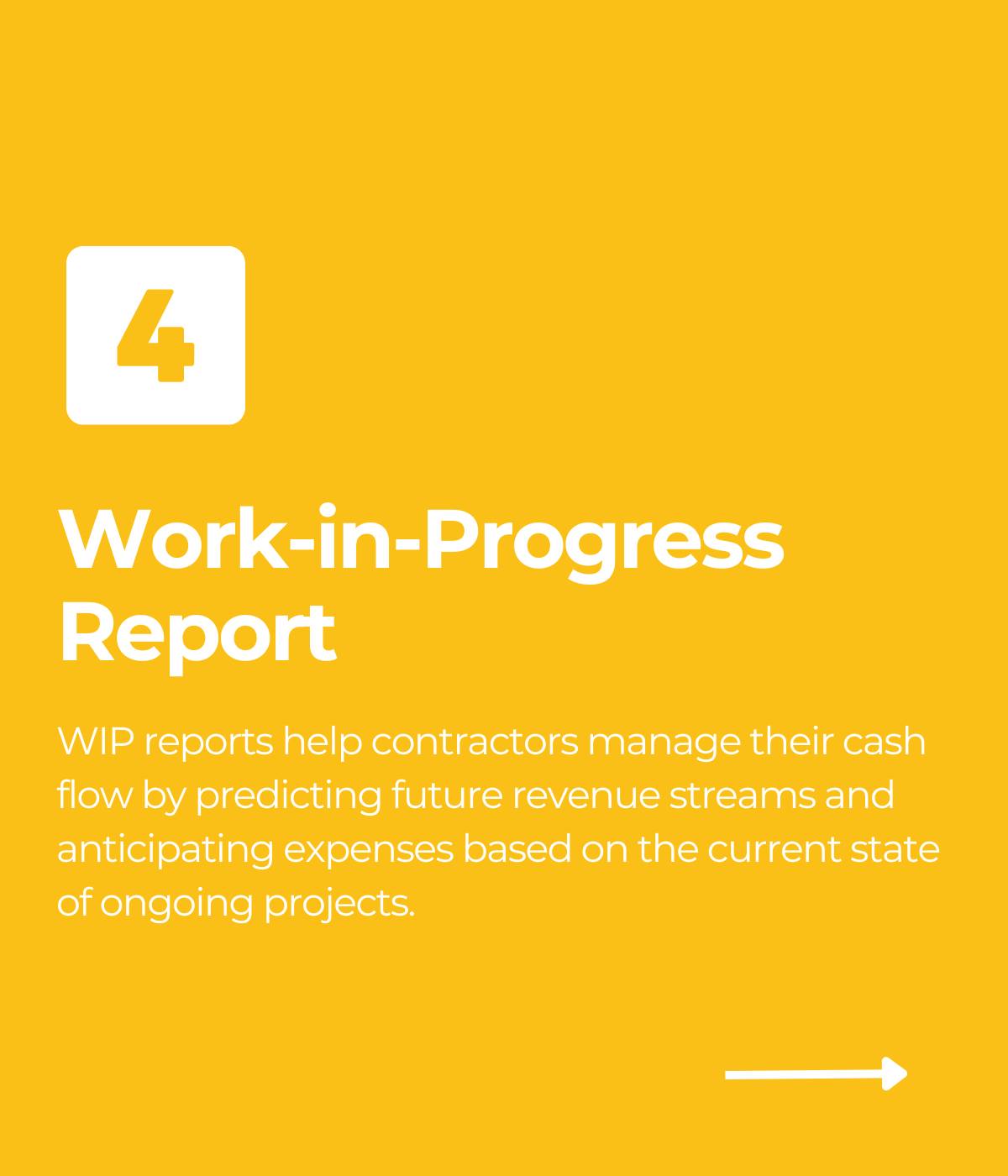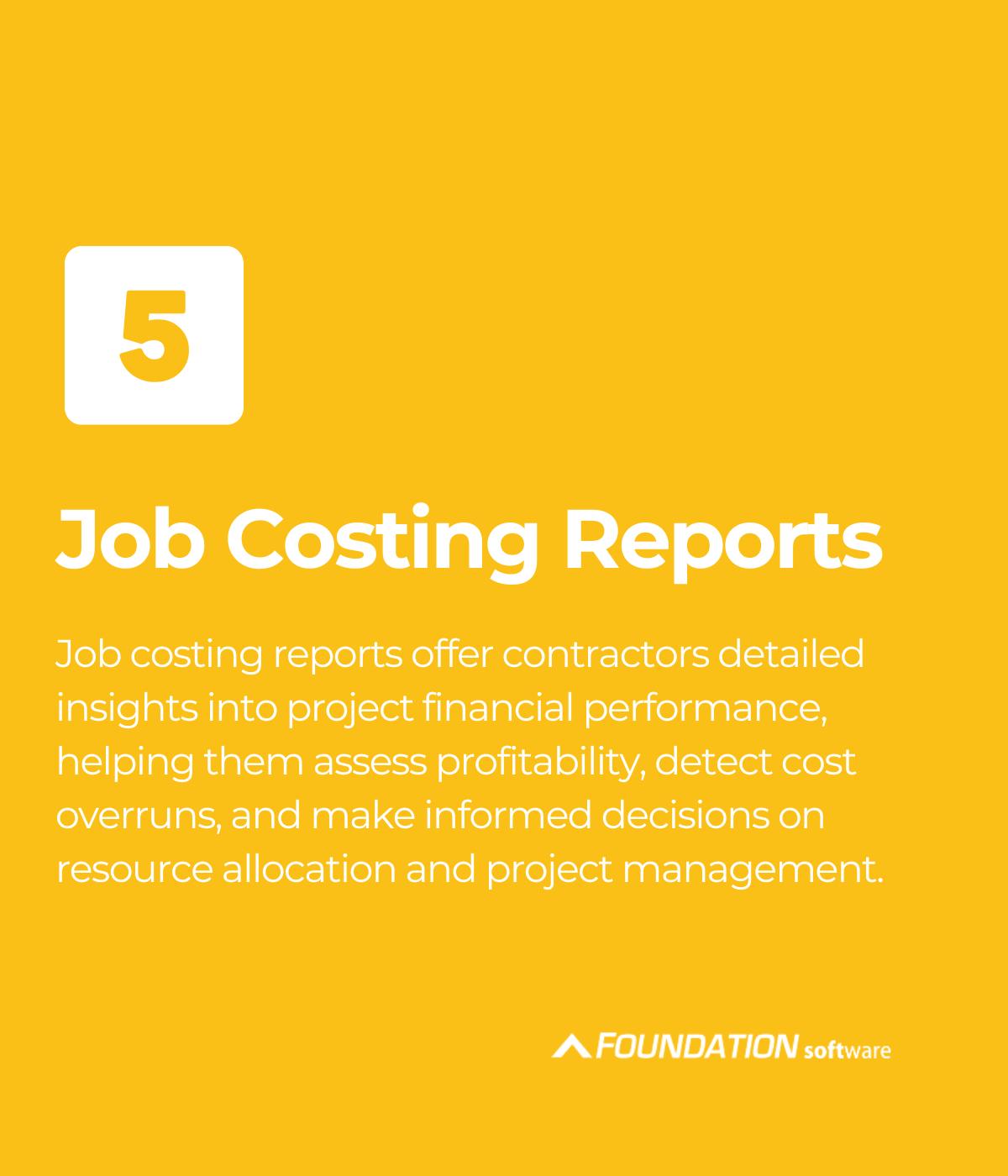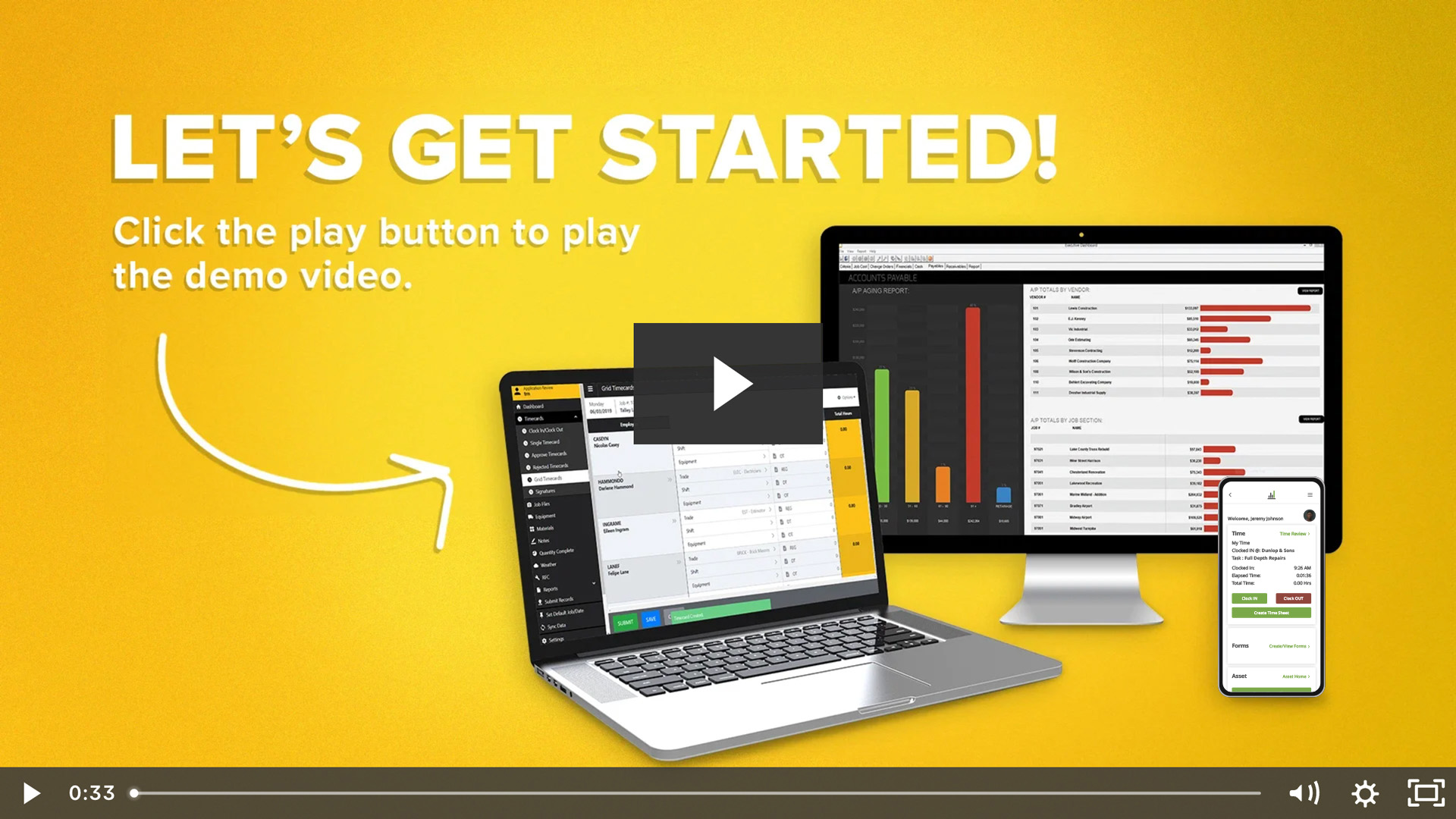
Many people believe, as the saying goes, that “you can never please all of the people all of the time.” True as that statement might be, successful construction business owners never stop trying.

When it comes to a construction accounting system, the goal should be to find a system that will help the entire company, not just the accounting office.
Many of today’s construction-specific accounting platforms, fortunately, go far beyond basic bookkeeping functions. They offer companies a complete solution capable of meeting the needs of everyone—from the owner and the accounting staff to field operations and everyone in between.
Even individuals outside the company (CPAs, surety associates and bankers) will benefit from a system that provides detailed reporting of a contractor’s financial operations.
Not just any accounting software has the ability to please so many people. Only job cost accounting software, with its many construction-specific functions and features, will have widespread appeal.
How many businesses like accounting software? In 2023, companies were willing to spend $15.69 billion on cost accounting software.
Here are the advantages, broken down by job title and responsibility:
Owner/President/CEO
Construction business owners and executive managers don’t have time to oversee every single transaction added to their accounting system. Nor do they want to. What they do want from an accounting system is:
- Timely and accurate job summary that gives them the “big picture” look at how their jobs are doing. This includes things such as cash flow, estimated vs. actual, over/under billing and overhead allocation.
- Powerful and flexible reporting capabilities, including built-in accounting standards to make reports and customizable report designers. This way, they can see their data exactly how they want to view it.
- Easy-to-analyze graphical data (e.g., dashboard technology) that allows them to see past financial management strategies and how their company is doing at a glance.
- Accounting software solutions with accounting automation that can help manage cash flow and improve profits.
CFO/Controller
As the person responsible for the company’s accounting functions and procedures, the construction CFO/controller wants a system that conforms to the way contractors do business.
Most general business accounting systems are not designed to handle the percentage of completion method of accounting. This is important because it is the most accepted method for commercial contractors.
Specifically, a CFO/controller looks for:
- An integrated job costing system capable of tracking detailed job costs while automatically updating the General Ledger.
- Easy handling of construction-specific functions such as multiple pay rates, certified payroll and AIA billings.
- Analysis of financial transactions and documents. Examples include things like a balance sheet, loss statement, income statement, cash flow statement, and more.
- A big picture of previous financial decisions and how to proceed with future business strategies.
- Complete date sensitivity and audit trail features. They make it easier to compile reports while giving them confidence in the data’s integrity.
- A system that minimizes time-consuming tasks such as redundant data entry and spreadsheet reporting. This way, workers have more time for higher-level activities and analyses.
Project Managers
Construction executives and upper management generally want access to one line per job summary reports.
Project managers want to see as much detail as possible. They want an accounting system that provides:
- Reporting and job cost breakdowns on many levels including total job costs, labor costs per task, costs per cost category, costs per unit of measure and labor productivity.
- The ability to link with popular estimating packages or spreadsheet applications to import detailed job cost budgets.
- Drill-down features, which allow users to click on a report and “drill down” into details (or even the original transaction) to help explain any discrepancies or trends.
- The ability to track equipment costs and usage and maintain inventory control, if needed.
- Optional document control/project management modules for tracking submittals, RFIs, field logs, change orders, purchase orders, subcontracts and more.
- An optional scheduling module to help track tasks and resources and keep jobs running smoothly.
Accounting Staff
Accounting personnel are responsible for day-to-day accounting transactions and data entry. They need a system that will make their job easier and more efficient.
To help keep productivity high and overhead low, a construction accounting system should:
- Include easy data import capabilities, such as the ability to import payroll timecards, for efficient transfer of data from the field.
- Automatically calculate pay rates, maintain taxing authorities and provide other time-saving default features for smoother payrolls.
- Provide billing flexibility, including integrated AIAs, unit price billing and time and material billing.
- Offers the ability to design invoice templates.
- Offer tight integration between modules to help reduce data entry and prevent errors.
- Eliminate the headaches of manual accounting such as doing calculations by hand and editing spreadsheets or data “silos” maintained outside the accounting system.
- Offer simple functions to “undo” transactions—but with a complete audit trail.
- Be easy to use and intuitive.
CPA/Outside Accountant
An experienced construction CPA adds tremendous value to a construction company by providing his/her expertise in accounting, financial and tax planning, and more. In order to be effective, a CPA must review his/her client’s bookkeeping on a regular basis. This process is more productive when a contractor’s accounting system includes:
- The ability to make corrections or re-class items with just a few mouse clicks;
- Easy access to financial reports and pertinent financial data;
- Date-sensitive transactions that allow immediate access to reports from any date range;
- Complete audit trails, with each adjustment saved as a separate transaction;
- A centralized console where they can easily compile reports and transaction records necessary for the typical audit/review.
IT/Tech Staff
Not every construction company is large enough, or lucky enough, to have its own IT department. However, even an outside technology consultant will offer a similar perspective when it comes to a contractor’s cloud-based accounting software.
IT’s wish list is small but comprehensive:
- A system that’s built upon a powerful database engine (e.g., Microsoft SQL). It offers advantages like compatibility, speed, security, flexibility and scalability.
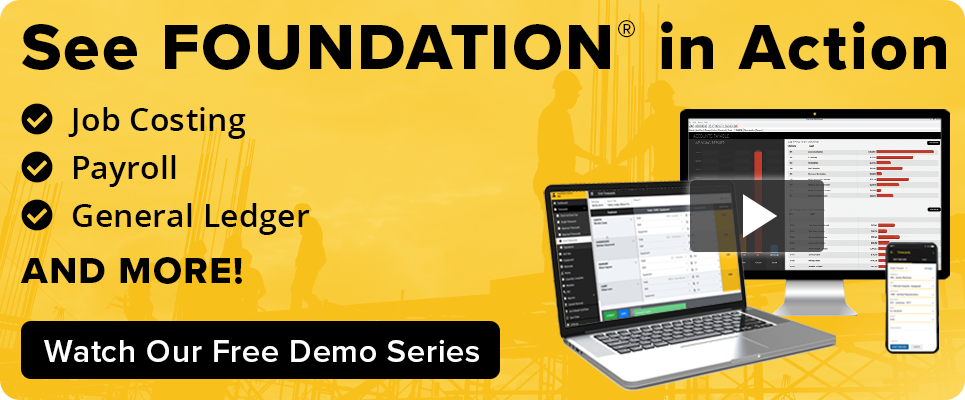
Pleasing everyone is a difficult feat, especially when it comes to new technology. But what if it were possible to find a product that could help the entire company improve productivity, efficiency and profitability?
Many of today’s construction accounting systems have the power to bring everyone together working toward a common goal: success.
*Published in Modern Contractor Solutions
Share Article
Keep on current news in the construction industry. Subscribe to free eNews!
Our Top 3 YouTube Videos
Learn about our software more in depth with product overviews, demos, and much more!
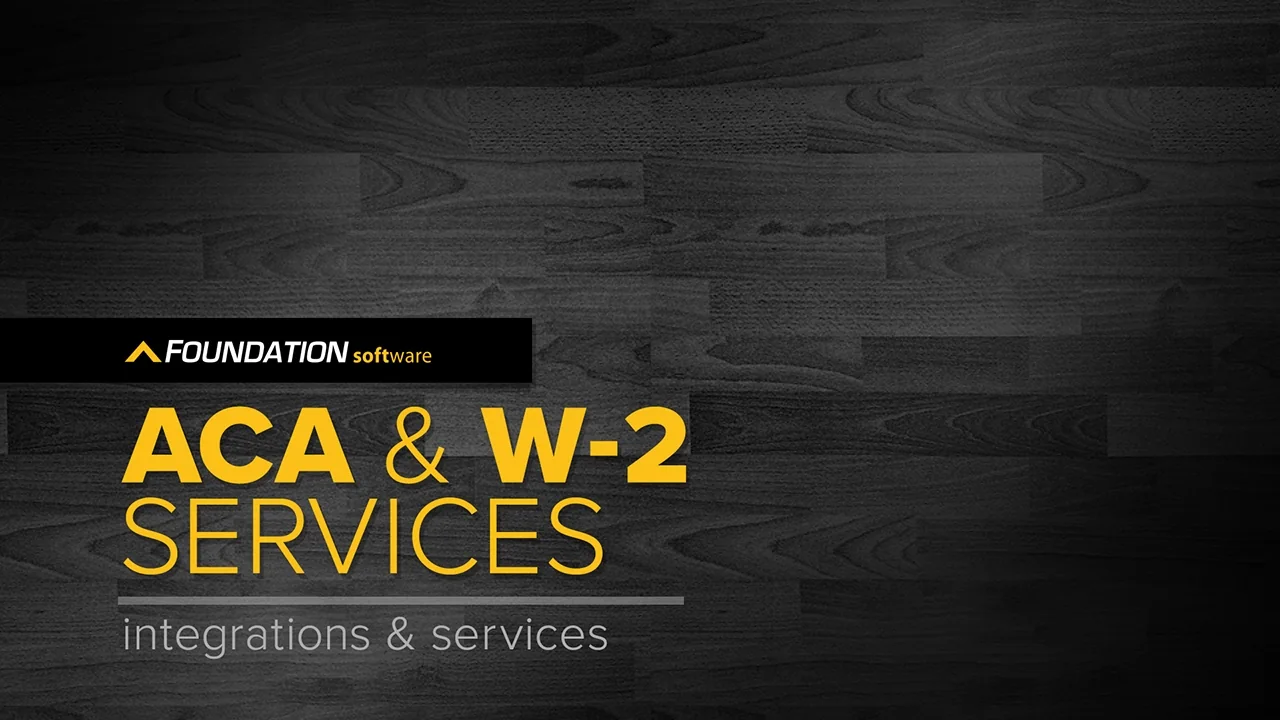
Our ACA reporting & e-filing services include official 1094-C and 1095-C IRS reporting, optional e-filing (no applying for a TCC code required), mailing to your employees and experienced support to help you.
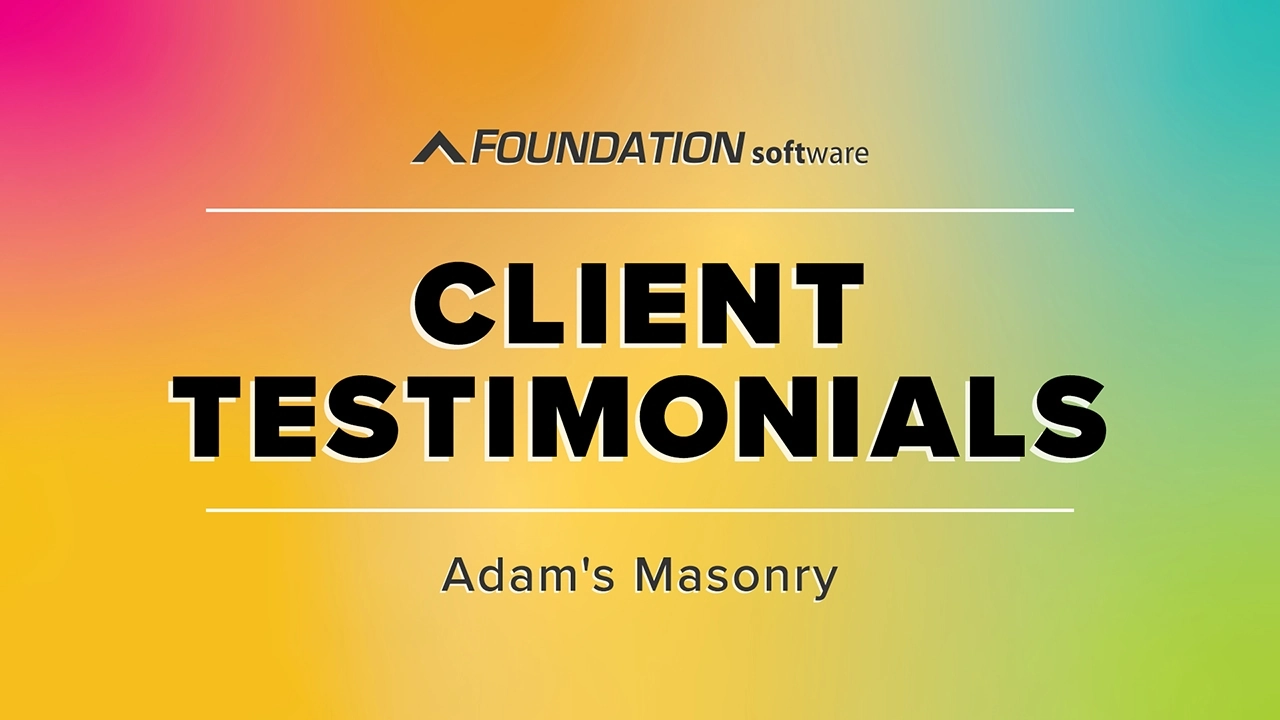
There are plenty of reasons to make FOUNDATION your choice for job cost accounting and construction management software — just ask our clients!
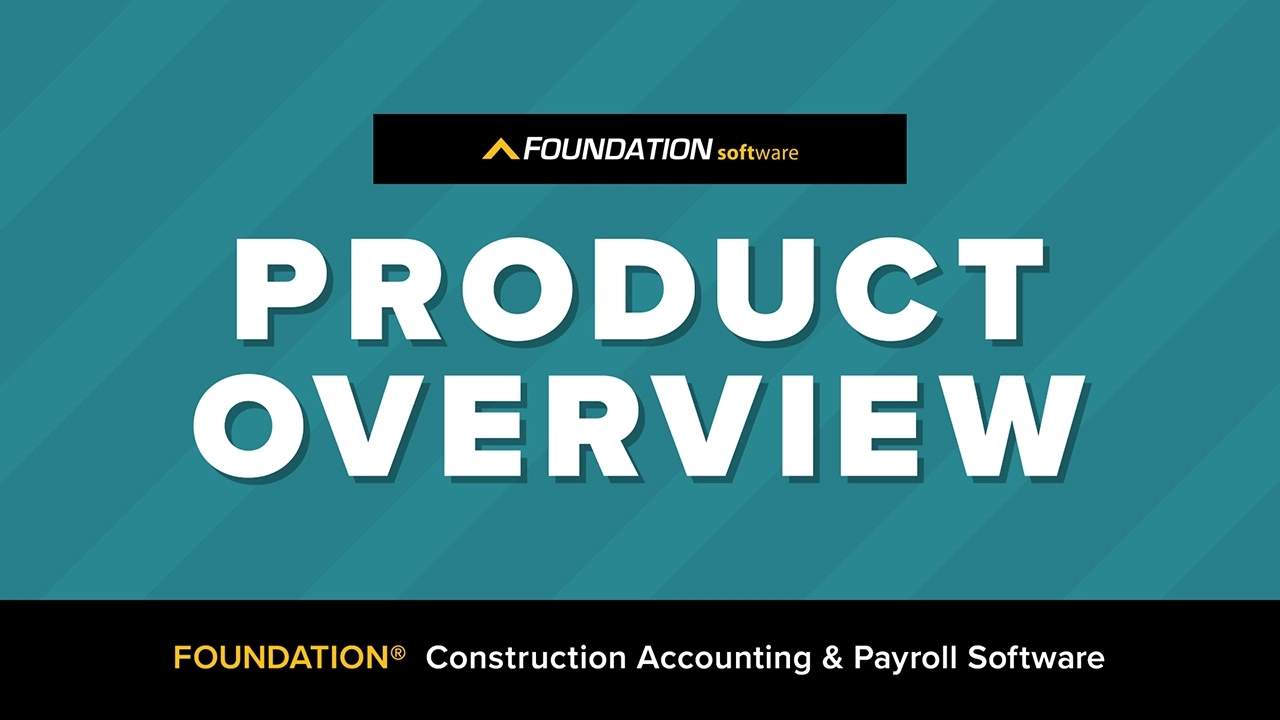
From job cost accounting software, to construction-specific payroll. Get an overview on your next all-in-one back-office solution.




